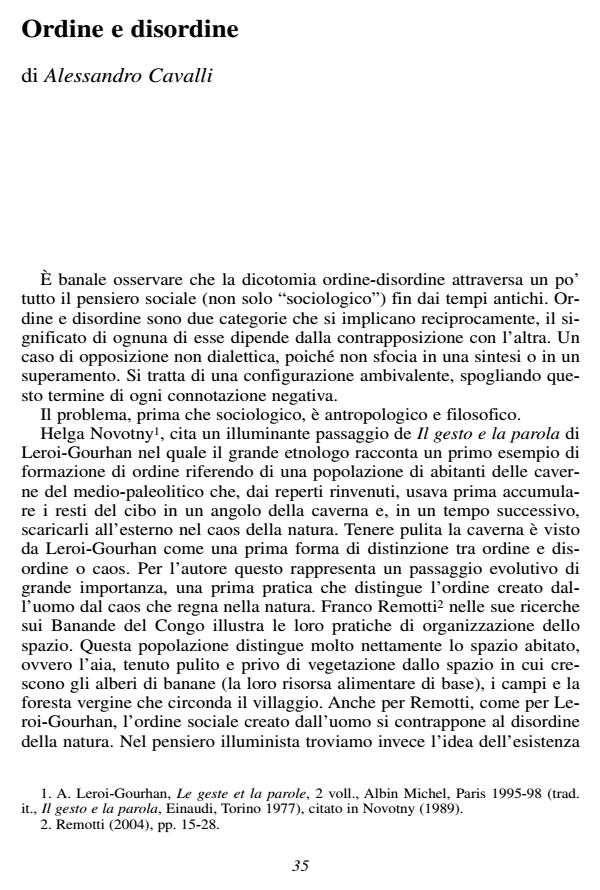Ordine e disordine
Titolo Rivista SOCIOLOGIA DEL LAVORO
Autori/Curatori Alessandro Cavalli
Anno di pubblicazione 2007 Fascicolo 2007/105
Lingua Italiano Numero pagine 14 P. 35-48 Dimensione file 60 KB
DOI
Il DOI è il codice a barre della proprietà intellettuale: per saperne di più
clicca qui
Qui sotto puoi vedere in anteprima la prima pagina di questo articolo.
Se questo articolo ti interessa, lo puoi acquistare (e scaricare in formato pdf) seguendo le facili indicazioni per acquistare il download credit. Acquista Download Credits per scaricare questo Articolo in formato PDF

FrancoAngeli è membro della Publishers International Linking Association, Inc (PILA), associazione indipendente e non profit per facilitare (attraverso i servizi tecnologici implementati da CrossRef.org) l’accesso degli studiosi ai contenuti digitali nelle pubblicazioni professionali e scientifiche.
In social thought, we can very schematically identify three main perspectives on the concept of order: i) order as intentionally planned social form: the idea of the order as a social result of a plan deployed from the top has a long history (from Platone to the totalitarian experience); ii) order as a non intentional spontaneous social form: opposite to the former perspective, this interpretation comes from the famous poem of Mandeville, through the works of authors like Smith, Durkheim and von Hayek; iii) moral order, that is the typical Durkheim’s concept that the social order expresses substantially a moral order corresponding, in the industrialised modern society, to the organic solidarity. The sociological traditional thought has two further possible perspectives for fruitfully exploring the issue of the social order: Simmel’s approach, emphasising the role of the level of social interaction; and Weber’s framework based on the famous typology of forms of social action. After introducing and discussing these perspectives, the author concludes pointing out three general conditions for maintaining the analytical usefulness of the dichotomy order/disorder.
Alessandro Cavalli, Ordine e disordine in "SOCIOLOGIA DEL LAVORO " 105/2007, pp 35-48, DOI: